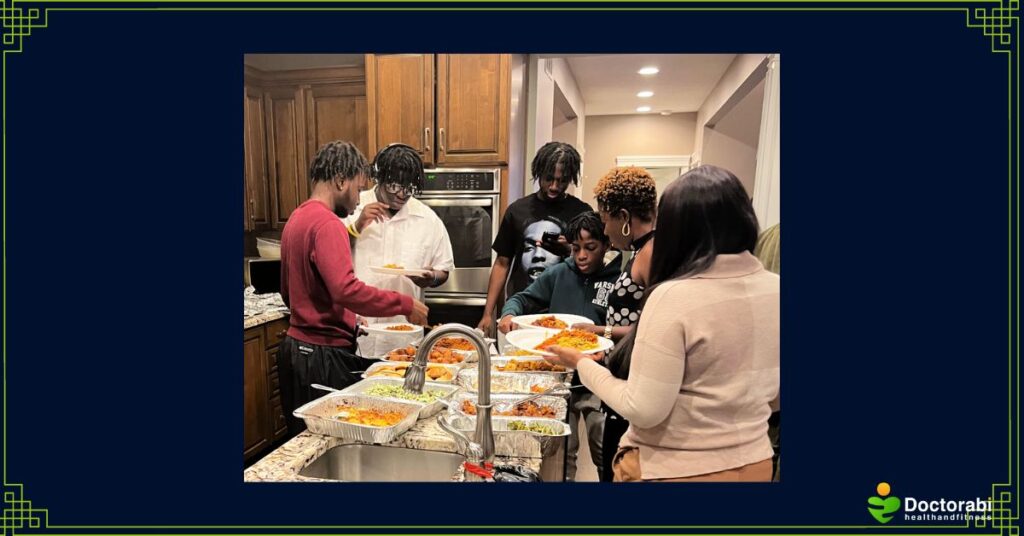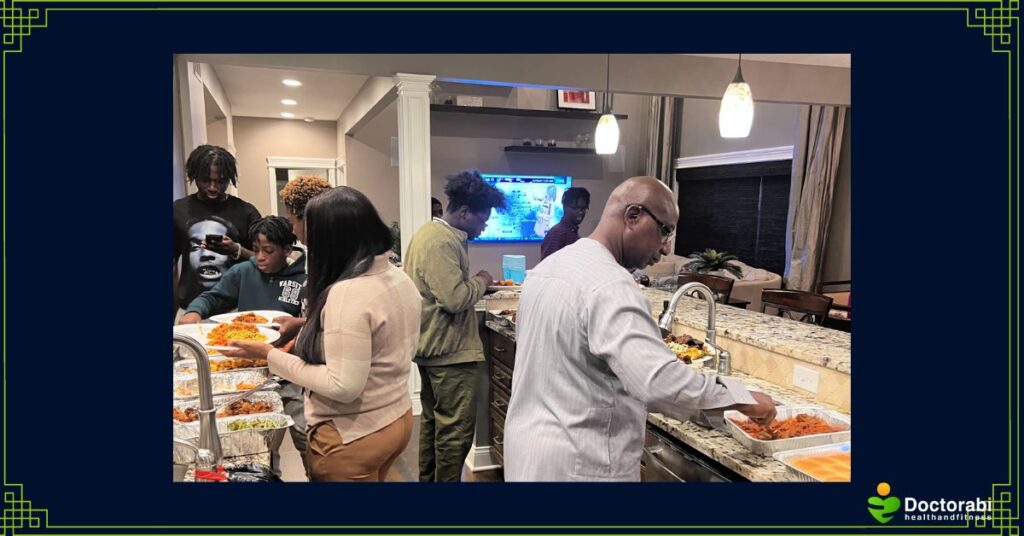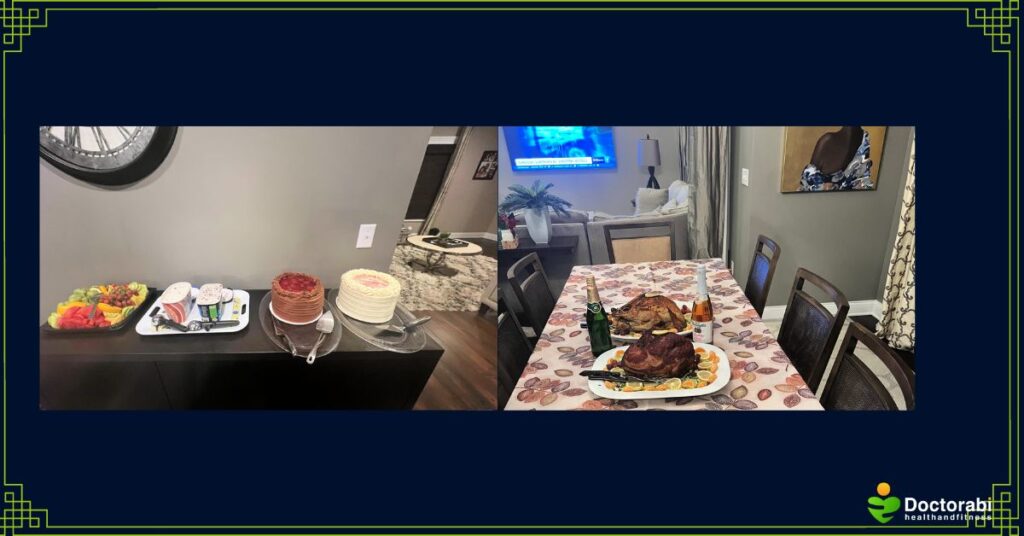Did you know that an average American consumes about 4,500 calories during Thanksgiving? In fact, some researchers estimate the number of calories consumed during Thanksgiving dinner to be closer to 6,300 calories! Thanksgiving is always a great time to show gratitude and acknowledge how good our God has been to us. This Thanksgiving, I had a fantastic time with family and friends, and, as usual, we made merry with the food and the drinks. However, Thanksgiving is over now. The calories are now in. What do we do with all the extra calories we just consumed? Besides, it is the Holiday season, and Christmas is around the corner. What will we do about all the extra calories that seem to latch on to us like magnets during the Holiday season? First, let’s look at what we must not do.

What not to do about the Thanksgiving calories
1) Avoid regrets
We should not agonize over all the extra calories consumed, even if our sweatpants feel tighter by the hour! What’s done is done, and we had fun consuming all those sumptuous meals with our family and friends. We must focus on looking ahead and undoing any damage we may have done to our diet and healthy lifestyle practices.
2) Don’t give up
Secondly, don’t throw in the towel, thinking, “My diet is already messed up, and there is no point eating healthy now and during the holidays.” The fact is that you can reverse the bloating and temporary weight gain as a result of consuming too many calories at Thanksgiving or during the Holidays.

3) Don’t starve yourself
Avoid starving yourself because you feel guilty about overeating during Thanksgiving or the Holidays. Starving yourself can confuse your body and ultimately lead to weight gain. Moreover, starving yourself will slow down your metabolism, and you won’t burn off all those extra calories you consumed. Finally, starving yourself will make you hungry and only increase your desire to overeat again.
4) Avoid the scale
If you consumed that many calories during Thanksgiving, your weight is bound to go up the next day. Remember that your body is still working to digest all those extra foods you ate. Additionally, your body retains water from all the salty foods you indulged in during Thanksgiving.
Now that we know what we should not do about our Thanksgiving calories, let’s see what we should do about them.
What to do about the Thanksgiving calories

1) Drink lots of water
Hydrating right after consuming all those extra calories during Thanksgiving is very important. Water will help flush out any excess salt and reduce bloating.
2) Eat highly nutritious meals
Starting the day after your Thanksgiving celebrations, eat highly nutritious foods with a good mix of protein, carbohydrates, fiber, and fat. And don’t forget your fruits and vegetables.
3) Keep moving

After eating a lot during Thanksgiving, exercise gets further away from our minds. However, we need to stay active. Although you cannot out-exercise your diet, physical exercise will boost your metabolism and can help reduce your appetite, so you don’t continue to eat like you did during Thanksgiving. Aim for at least 30 minutes of light cardio, such as walking or dancing. Better still, add dancing to your Thanksgiving tradition to stay active and continuously burn calories.
4) Get some sleep
It is common to keep late nights during Thanksgiving and the Holidays as we felicitate with family and friends. However, studies have shown that if we don’t get enough sleep, we are more likely to eat more, with a preference for high-calorie foods. Therefore, we must get at least 7 hours of sleep daily to get back on track.
Final thoughts

Thanksgiving calories aside, I hope you had a great Thanksgiving. The focus of Thanksgiving should not be on the food or the extra calories. Instead, we should focus on expressing our gratitude for all the blessings in our lives. This Thanksgiving, I am grateful for my family, friends, and all the blessings in my life, too numerous to count!
Although we have set aside a particular day in the year for Thanksgiving, we should practice Thanksgiving every single day. Practicing gratitude is one of the most important habits we can adopt to improve our health and well-being. Gratitude can improve sleep and decrease depression, anxiety, and chronic pain, among other benefits. For more on the benefits of gratitude and how to practice gratitude, please check out “Thankful for the Little Things.”
Finally, this Holiday season, remember to count your blessings daily and let the people in your life know how much you appreciate them. Happy Holidays!
Please feel free to share your comments below. Also, feel free to share this article.
Yours in health and fitness,
Doctor Abi

